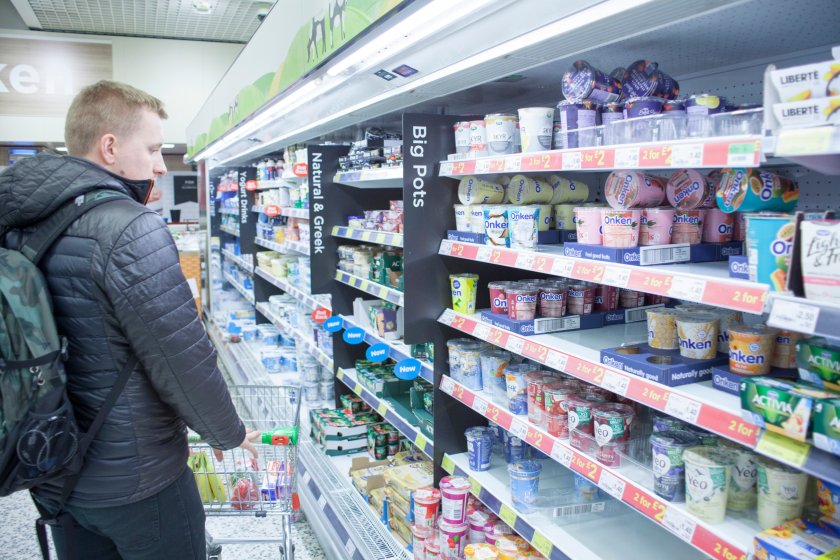
Almost one in five say they are less likely to buy food labelled 'Not for EU' which will be a requirement on all British meat and dairy produce from October 2024.
The poll, undertaken by Survation on behalf of anti-Brexit campaign group Best for Britain, also revealed that only three in ten (28%) understand where ‘Not for EU’ products are manufactured.
The labels have been introduced on some food products that move between Great Britain and Northern Ireland.
The system is meant to stop produce from crossing into EU regions, such as the Republic of Ireland, from Northern Ireland.
They are designed to end the long-running dispute between the EU and the UK over the Northern Ireland protocol.
But the poll's findings suggest confusion among consumers, something that could increase as new trade deals with countries like Australia and New Zealand come into effect.
It also suggests that British farmers and retailers could face new financial strain from a lack of consumer confidence caused by these deals.
Just under half (45%) of respondents think the UK government is responsible for the new labels and their negative impact on consumer confidence.
It follows a separate study by the Food and Drink Federation (FDF) which found that ‘Not for EU’ labelling will pose a significant risk to UK exporters.
The data has been published as the prime minister seeks to claw back support among rural communities following significant by-election defeats and worrying polling for the party in traditional Tory heartlands.
Speaking at the NFU Conference, Rishi Sunak underlined his commitment to clear labelling despite these challenges.
When grilled on the challenges created for farmers by the threat of regulatory divergence and the lack of a SPS agreement with the EU market, the prime minister said “I’ll be totally honest, it’s work in progress”.
Responding to the survey results, Naomi Smith, CEO of campaign group Best for Britain, said "almost every agricultural challenge has been made more difficult by Brexit."
"This government has continued to hammer farmers and food suppliers with terrible new trade deals which undercut British standards," she added.
“The next government must commit to a youth mobility visa scheme to tackle labour shortages, an independent board of trade to protect farmers from fire-sale trade deals, and beneficial regulatory alignment with our largest market to slash red tape.”
